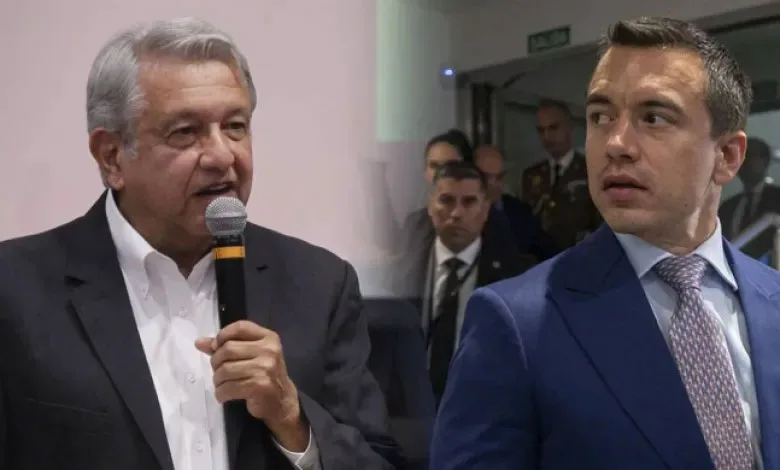Repeal Section 230! It’s time for social media to be held accountable for the content on its platforms

Hundreds of rioters, part of a “Stop the Steal” protest of the recent U.S. presidential election, broke into the Capitol in Washington, D.C. on January 6. Many claim the violence was inspired by false information posted on social media sites.
Editor’s note: The riot at the U.S. Capitol two weeks ago has ignited a debate about the role of major social media platforms as purveyors of news and other information, much of it proven to be false and incendiary. The debate focuses on social media’s special exemption from responsibility for its content granted by Section 230 of the U.S. Communications Decency Act of 1996. Retired U.S. diplomat and Quito resident Andrew Winter argues that the exemption should be eliminanted and that social media should be held to the same legal standard as print and broadcast media.
By Andrew Winter
Social Media are media. They are no longer only social. Apps that were created to enhance communication among friends or communities that shared interests have morphed into news, sales and advertising sites that seek to maximize interactions and profit. They also seek to influence public opinion and report information, both real and fake. As such, they should be held to the same standards as all other news sites whether mainstream media, radio, television or newspapers.
profit. They also seek to influence public opinion and report information, both real and fake. As such, they should be held to the same standards as all other news sites whether mainstream media, radio, television or newspapers.
Section 230 says that “No provider or user of an interactive computer service shall be treated as the publisher or speaker of any information provided by another information content provider” (47 U.S.C. § 230). In other words, online intermediaries that host or republish speech are protected against a range of laws that might otherwise be used to hold them legally responsible for what others say and do. Intermediary is a passive role.
Social Media are anything but passive: encouraging users to sign up for groups that represent points of view and positions, enabling posts to go viral and publishing their own news stories and opinion pieces. Social Media must therefore be held responsible for content. They must be subject to penalties including civil and criminal prosecution for libel and publishing false information.
I will be accused of limiting free speech. Nothing could be further from the truth. I am holding the publisher responsible for content. I am holding Social Media to the same standards and limitations on freedom of the press that apply to all media.
 Facebook makes two false claims. First, that it is a defender of free speech. Instead, it is a propagator of fake news. Secondly, that it is not a publisher. Yet it publishes its own news feed. (1)
Facebook makes two false claims. First, that it is a defender of free speech. Instead, it is a propagator of fake news. Secondly, that it is not a publisher. Yet it publishes its own news feed. (1)
“The scale of internet platforms is such that their mistakes can undermine democracy, public health, and public safety even in countries as large as the United States. Facebook’s own research revealed that 64 percent of the time a person joins an extremist Facebook Group, they do so because the platform recommended it. Facebook has also acknowledged that pages and groups associated with QAnon extremism had at least three million members, meaning Facebook helped radicalize two million people.” (2)
Money-making enterprises must not only be shamed but also held accountable. Shaming worked when John Seigenthaler published an editorial criticizing Wikipedia for a fake biography (3), in part because Wikipedia was dedicated to the truth. Shaming worked, more recently with Pornhub which eliminated 60% of their content (4), in part because they were involved in a potentially illegal activity. But these examples are the exception, not the rule.
If a company manufactures a faulty product they must either issue a recall (i.e., take responsibility) and/or be subject to civil and criminal action by individuals and/or the government. If a newspaper (or other more traditional form of media) prints (or broadcasts) a false story, it must retract the story (take responsibility) and/or be subject to suit for any damage caused including libel. Similarly, Social Media must be held accountable. If they publish words that incite riot, sedition and/or insurrection, they should be subject to prosecution. Facebook algorithms promote hate because hate drives numbers which drive profits. What if Zuck could be arrested and criminally prosecuted for publishing posts fomenting insurrection and sedition?
Section 230 should be amended to only exempt Internet Service Providers who are the only true intermediaries. All social media should be responsible for content.
In addition Social Media should adopt the following practices:
- Remove content at the request of a customer within 24 hours unless they can substantiate it.
- Limit distribution of content to a set number of people and/or groups. WhatsApp is already doing this with some success. WhatsApp users including Groups are limited to forwarding information to 10 other users or groups. If the item has already been frequently forwarded, the user or group is limited to only forwarding to ONE user or group at a time.
- Credential and validate all groups. Stop the practice of advertising groups to users.
- Vet all ads for accuracy, hate speech, etc. Consideration should be given to banning ALL political and advocacy ads. If it is SOCIAL media, then the content should be social not political.
____________________
Andrew Winter is a retired American Diplomat who has seen the post truth world in Ecuador, Brazil, Finland, Taiwan, South Africa and as U.S. Ambassador to The Gambia. He also was in charge of technology at the Department of State (Deputy Assistant Secretary for Information Management). He lives in Quito.
Notes:
(1) https://about.fb.com/wp-content/uploads/2020/02/Charting-A-Way-Forward_Online-Content-Regulation-White-Paper-1.pdf
(2) “Platforms Must Pay for Their Role in the Insurrection” by Roger McNamee, Wired, January 7, 2021
(3) “A false Wikipedia ‘biography’” by John Seigenthaler, USA Today,November 29, 2005
(4) “The Children of Pornhub” by Nicholas Kristof, NY Times, December 4, 2020
















